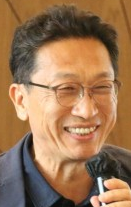Microgrid Stability and Integration of Wave Energy in Developing Countries
INGINE Wave Energy Systems ltd (IWES) has developed an onshore-type Wave Energy Converter (WEC) system, which is reliable and affordable for shoreline and remote islands. The system is an innovation of generating power using the whole range of wave movements, enabling its application in shallow waters, where conventional technologies otherwise have difficulties. Avoiding the pitfalls of offshore-based, capital-intensive wave technologies, the system is free from heavy installation cost, such as expensive subsea cabling costs.
Since the company is approaching TRL 7 stage pilot plants to demonstrate in many developing countries, IWES has conducted diverse feasibility studies to install its WEC system in Vietnam, Indonesia, Sri Lanka, Nigeria, Canada and Reunion island (France).
Key Take-aways:
- Grid-forming inverters capable of rapid response and sustaining operation during power outages
- Controlled management of energy-intensive loads to limit oversupply and energy curtailment
- Creation of programmable loads for infrastructure (e.g., desalination plants)
- Interconnection with portable battery systems (e.g., vehicle to grid - the island's planned electric scooter fleet) increasing energy storage options
- Plug-and-play energy management systems, using artificial intelligence

Jeff Lee
Managing Director
INGINE Wave Energy Systems Ltd.
Jeff Lee, Managing Director of INGINE Wave Energy Systems Ltd in Scotland, has been with the company since 2016 in roles of project development and management. His activities include receiving the Seal of Excellence by EC Horizon2020 in 2017, collaborating with EDF Energy in the UK, working on a UK-Morocco WEC project 2018-2020, and receiving the Marine Energy Alliance (MEA) award of technical assessment by EMEC and MaREI in 2019-2022. He also recently served in a project manager role as a Energy Catalyst Round 9 programme winner since 2022.

Managing Director
INGINE Wave Energy Systems Ltd.
Jeff Lee, Managing Director of INGINE Wave Energy Systems Ltd in Scotland, has been with the company since 2016 in roles of project development and management. His activities include receiving the Seal of Excellence by EC Horizon2020 in 2017, collaborating with EDF Energy in the UK, working on a UK-Morocco WEC project 2018-2020, and receiving the Marine Energy Alliance (MEA) award of technical assessment by EMEC and MaREI in 2019-2022. He also recently served in a project manager role as a Energy Catalyst Round 9 programme winner since 2022.
